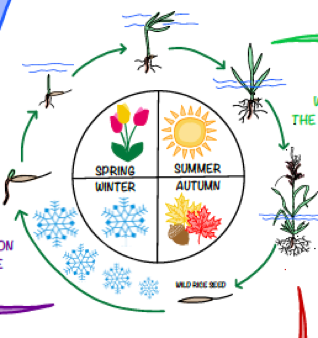University of MN studying possible health benefits of manoomin
Colon cancer is the third most common cancer diagnosis and the second leading cause of cancer death for all Minnesotans. Native American Minnesotans experience both the state’s highest diagnosis rate and mortality rate from colorectal cancer.
In 2018, the Fond du Lac Band of Lake Superior Chippewa published a health impact assessment that described the important role of manoomin—wild rice—to support the health of tribal members.
In response to questions raised in that health assessment, several University of Minnesota researchers in Duluth and the Twin Cities are studying the potential for wild rice consumption to prevent malignant (cancerous) changes. At this time, the researchers are conducting this study on an animal model.
The research team is Daniel Gallaher, Ph.D., and Lindsey Meder, a Master Degree candidate, of the Twin Cities University campus, and Emily Onello, MD, of the University of MN Medical School Duluth campus.
Dr. Onello is a family practice physician who once worked in Silver Bay, who wanted to be sure to let WTIP know that the wild rice in the study was harvested by Jeff Savage of the Fond du Lac Band of Lake Superior Chippewa. She expressed appreciation to the many Fond du Lac and Grand Portage community members who spoke with her about the lifelong connection that exists between the Anishinaabe people and manoomin.
Dr. Onello also expressed appreciation to the Whiteside Institute for Clinical Research, which funded the wild rice study, a collaboration of St. Luke's Hospital and the University of Minnesota Medical School, Duluth.
Anyone who would like to learn more may contact Dr. Onello by email to: econello@d.umn.edu
WTIP’s Rhonda Silence spoke with Dr. Onello, who made this scientific study very understandable and interesting. Here’s their conversation.
Tweet







